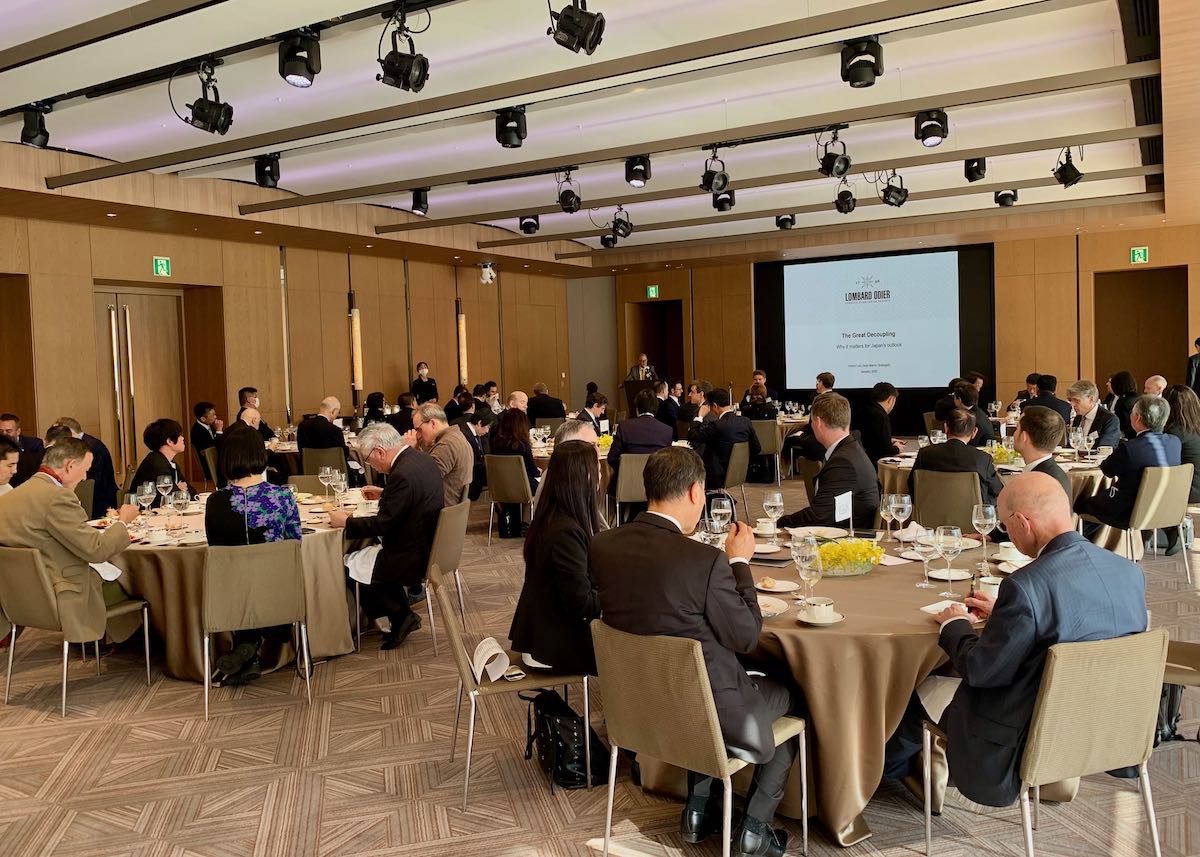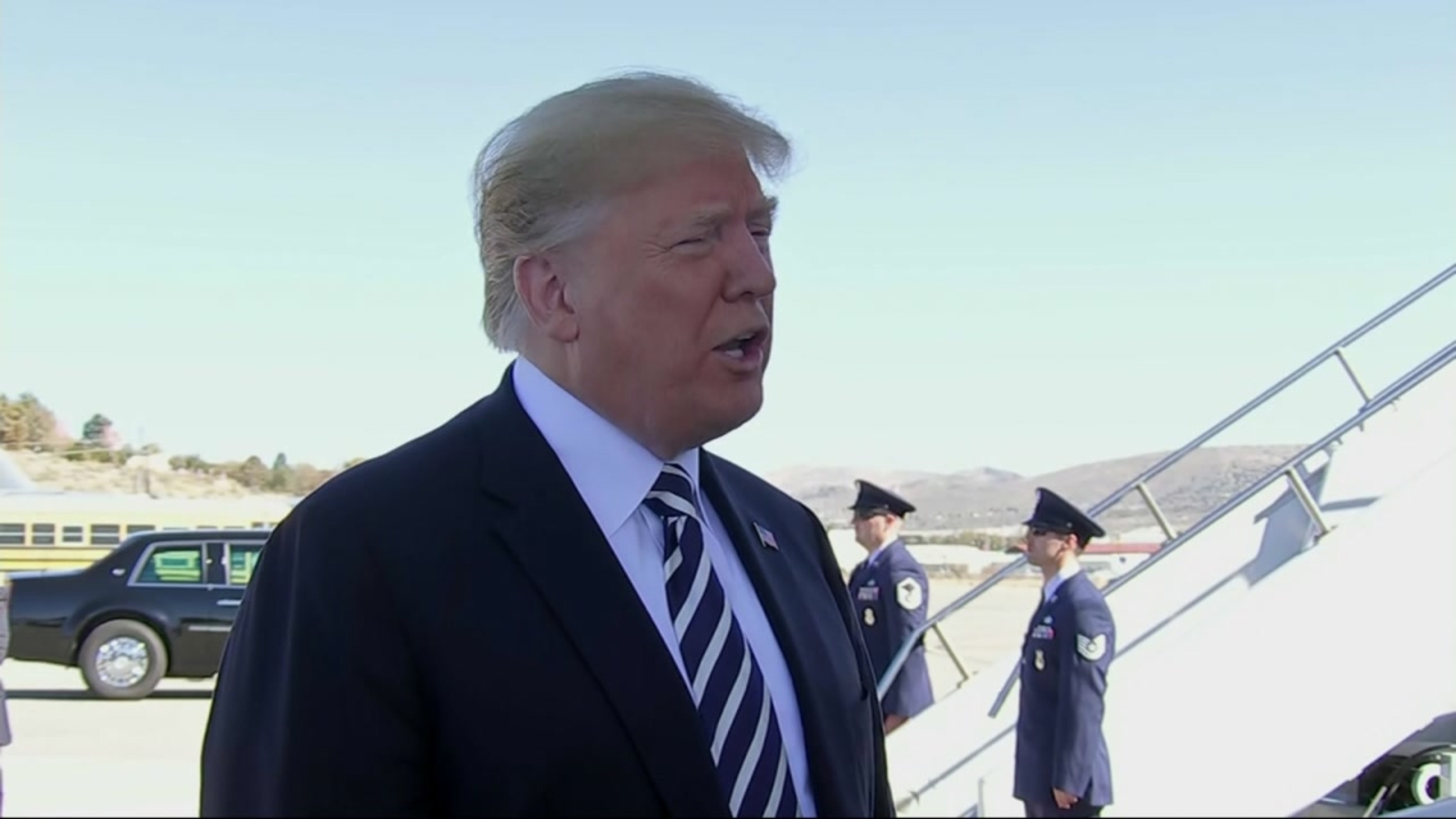The Great Decoupling In The 21st Century: Causes And Consequences

Table of Contents
Technological Divergence as a Driver of the Great Decoupling
The Great Decoupling is significantly fueled by a growing technological divergence between nations. This involves a concerted effort by countries to build self-reliant technological capabilities and reduce dependence on foreign technologies and supply chains. This technological decoupling is driven by a confluence of factors.
The Rise of Domestic Technology and Supply Chains
Many nations are prioritizing domestic technology development to enhance national security and economic competitiveness. This trend manifests in several ways:
- Increased investment in domestic semiconductor production: Countries are investing heavily in building their own semiconductor manufacturing capabilities, reducing reliance on foreign suppliers like Taiwan and South Korea. This is evident in initiatives like the US CHIPS and Science Act and similar programs in Europe and Asia.
- National champions and industrial policies: Governments are actively supporting domestic companies in strategic technological sectors, offering subsidies, tax breaks, and other incentives to foster innovation and competitiveness. China's Made in China 2025 initiative is a prime example of this strategy, aiming to achieve self-sufficiency in key technological areas.
- Trade wars and supply chain disruptions: Trade disputes and geopolitical tensions have exposed vulnerabilities in globally integrated supply chains, prompting countries to prioritize domestic sourcing and diversify their supplier base. This has led to a significant shift towards regionalization and "friend-shoring" of supply chains. The impact of the US-China trade war on supply chain resilience is a case in point.
These efforts towards technological self-reliance are creating a more fragmented global technological landscape, representing a significant aspect of the Great Decoupling.
Data Security and National Security Concerns
Data security and national security concerns are playing a crucial role in driving technological separation. Governments are increasingly implementing policies aimed at protecting sensitive data and critical infrastructure from foreign influence:
- Data localization policies: Many countries are mandating that data collected within their borders be stored and processed domestically, limiting the ability of foreign companies to access and utilize this data. This impacts cloud computing providers and other data-centric businesses significantly.
- Restrictions on foreign technology use: Governments are imposing restrictions on the use of foreign technology in sensitive sectors such as telecommunications, defense, and energy, citing national security risks. This has led to bans on certain foreign technologies and the development of domestic alternatives.
- Cybersecurity threats: The increasing frequency and sophistication of cyberattacks are further fueling concerns about reliance on foreign technology and data, driving the adoption of more stringent security measures and a preference for domestically produced solutions.
These concerns underscore the growing importance of data sovereignty and cybersecurity in the context of the Great Decoupling.
Geopolitical Rivalries Fueling the Great Decoupling
Geopolitical rivalries, particularly the intensifying competition between major powers, are significantly accelerating the Great Decoupling.
The US-China Tech War
The technological competition between the US and China is arguably the most prominent driver of the Great Decoupling. This "tech war" involves a range of actions:
- Sanctions and export controls: The US has imposed sanctions and export controls on Chinese companies, restricting their access to advanced technologies and hindering their technological development. This has particularly impacted companies like Huawei and ZTE.
- Investment restrictions: Both the US and China have implemented restrictions on investments in each other's technology sectors, limiting cross-border technology transfers and collaborations.
- Trade disputes: Trade disputes and tariffs have further strained US-China relations, hindering technology flows and creating barriers to cooperation.
This intense technological competition is fundamentally reshaping global technology flows and accelerating the decoupling process.
The Rise of Protectionism and Trade Barriers
The rise of protectionist policies and trade barriers is further contributing to the Great Decoupling. Governments are increasingly resorting to:
- Increased tariffs: Higher tariffs on imported goods, especially in strategic technology sectors, are raising costs and hindering international trade.
- Trade restrictions: Restrictions on foreign direct investment and other trade-related measures are limiting cross-border economic activity.
- Subsidies and preferential treatment: Governments are providing subsidies and preferential treatment to domestic companies, creating an uneven playing field for international businesses.
These protectionist measures are reversing decades of globalization and fostering a more fragmented and regionalized global economy, a key characteristic of the Great Decoupling.
Economic and Societal Consequences of the Great Decoupling
The Great Decoupling is having profound economic and societal consequences, impacting businesses, governments, and individuals worldwide.
Fragmentation of Global Value Chains
The decoupling process is leading to a significant fragmentation of global value chains (GVCs):
- Increased costs: Businesses are facing higher costs due to disruptions in supply chains, increased transportation expenses, and the need to diversify sourcing.
- Supply chain disruption: The reliance on multiple suppliers and geographically dispersed production processes has been disrupted, leading to production bottlenecks and delays.
- Challenges for multinational corporations: Multinational corporations are struggling to adapt to the changing geopolitical landscape and navigate the complexities of fragmented value chains.
This fragmentation is reducing the efficiency and competitiveness of global production systems.
Geopolitical Instability and Increased Tensions
The Great Decoupling has the potential to exacerbate geopolitical instability and increase tensions between nations:
- Potential for regional conflicts: Competition for resources and technological dominance can escalate tensions and increase the risk of regional conflicts.
- Escalation of existing tensions: The decoupling process can further strain existing geopolitical rivalries, making cooperation and conflict resolution more challenging.
- Challenges for international cooperation: The fragmentation of the global system makes international cooperation on shared challenges more difficult, undermining multilateral institutions and agreements.
This increased geopolitical instability represents a significant risk to global peace and security.
Conclusion
The Great Decoupling is a complex and multifaceted phenomenon driven by technological divergence, geopolitical rivalries, and rising protectionism. Its consequences are far-reaching, affecting global value chains, economic efficiency, and geopolitical stability. The fragmentation of global systems presents both challenges and opportunities for businesses, governments, and individuals. Understanding the nuances of the Great Decoupling is crucial for navigating the complexities of the 21st-century global landscape. Continue your research on the implications of this significant Great Decoupling and its effects on your industry.

Featured Posts
-
 Mbaryat Barys San Jyrman Fy Dwry Abtal Awrwba Thlyl Wtwqeat
May 09, 2025
Mbaryat Barys San Jyrman Fy Dwry Abtal Awrwba Thlyl Wtwqeat
May 09, 2025 -
 Dijon 2026 Le Projet Ecologiste Pour Les Municipales
May 09, 2025
Dijon 2026 Le Projet Ecologiste Pour Les Municipales
May 09, 2025 -
 Dakota Johnson With Family At Materialist La Screening
May 09, 2025
Dakota Johnson With Family At Materialist La Screening
May 09, 2025 -
 Champions League Semi Finals 2024 Dates For Barcelona Inter Arsenal And Psg
May 09, 2025
Champions League Semi Finals 2024 Dates For Barcelona Inter Arsenal And Psg
May 09, 2025 -
 Bollywood Actress Lisa Rays Air India Complaint Airline Issues Statement
May 09, 2025
Bollywood Actress Lisa Rays Air India Complaint Airline Issues Statement
May 09, 2025
Latest Posts
-
 The Experiences Of Transgender People Under Trumps Executive Orders
May 10, 2025
The Experiences Of Transgender People Under Trumps Executive Orders
May 10, 2025 -
 Trumps Legacy The Transgender Communitys Perspective
May 10, 2025
Trumps Legacy The Transgender Communitys Perspective
May 10, 2025 -
 Bangkok Post Highlights Growing Movement For Transgender Equality
May 10, 2025
Bangkok Post Highlights Growing Movement For Transgender Equality
May 10, 2025 -
 The Impact Of Trumps Transgender Military Ban A Critical Analysis
May 10, 2025
The Impact Of Trumps Transgender Military Ban A Critical Analysis
May 10, 2025 -
 The Trump Presidency And Its Impact On The Transgender Community
May 10, 2025
The Trump Presidency And Its Impact On The Transgender Community
May 10, 2025
